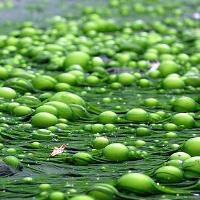(BRUSSELS) – A European Commission report on nitrate pollution based on 2016-2019 data shows little progress over the last decade, with nutrient pollution from agriculture still a serious concern for many EU states.
The latest Commission Report on the implementation of the Nitrates Directive warns that nitrates are still causing harmful pollution to water in the EU.
Nitrates in water are harmful to both human health and ecosystems, causing oxygen depletion and eutrophication.
Where national authorities and farmers have cleaned up waters, the report shows it has had a positive impact on drinking water supply and biodiversity, and on the sectors such as fisheries and tourism that depend on them. Nevertheless, excessive fertilisation remains a problem in many parts of the EU.
Environment Commissioner Virginijus Sinkevicius said implementation of the Nitrates Directive over the last 30 years “has undoubtedly increased water quality overall in the EU”.
However, he added that “the pace of change is not enough to prevent damage to human health and preserve fragile ecosystems. In line with the European Green Deal, more urgent action is now needed to achieve a sustainable agriculture and protect our precious water supply.”
Nitrate concentrations have fallen in both surface and groundwater in the EU compared to the situation prior to the adoption of the Nitrates Directive in 1991.
However, the new report reveals that little progress has been made over the last decade and nutrient pollution from agriculture is still a serious concern for many Member States.
The Commission says it will act to improve compliance with the Nitrates Directive, which is a prerequisite for reaching the European Green Deal objective of reducing nutrient losses by at least 50% by 2030.
Nitrates Directive Implementation Report - background guide
Commission Report on the implementation of the Nitrates Directive for the period 2016-2019


